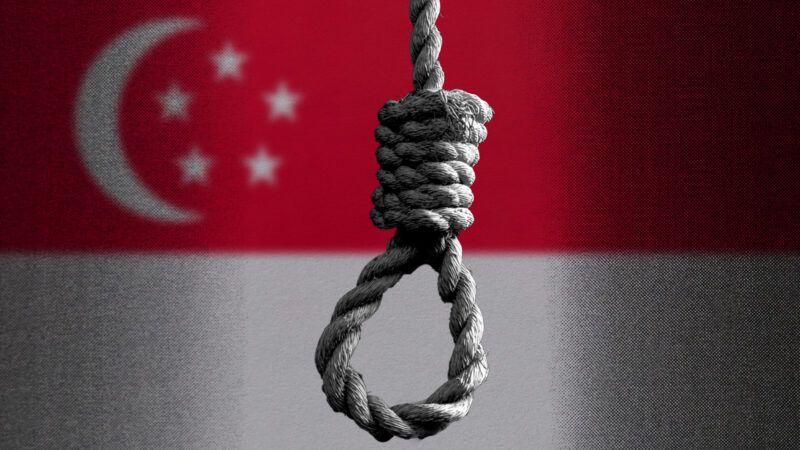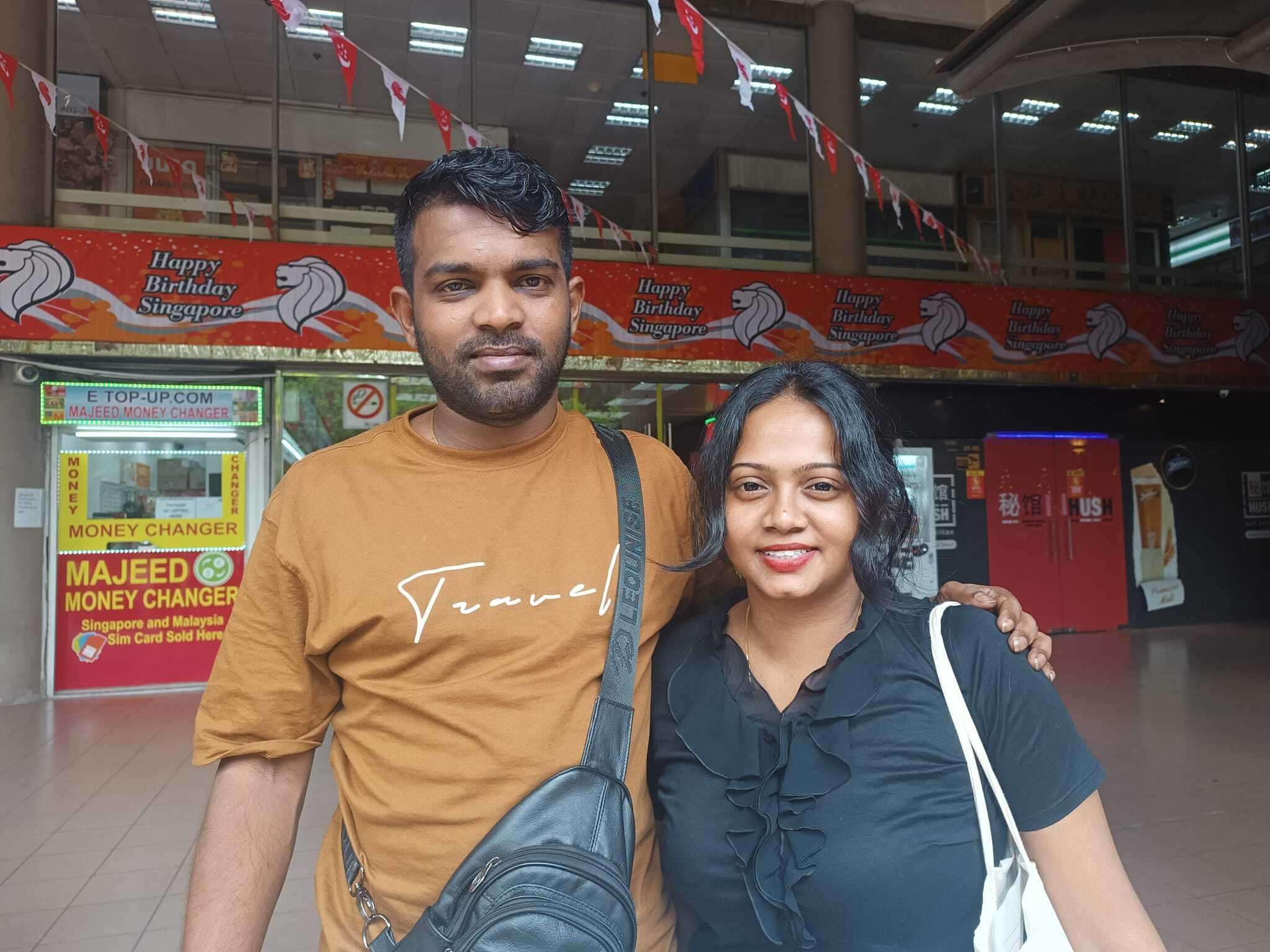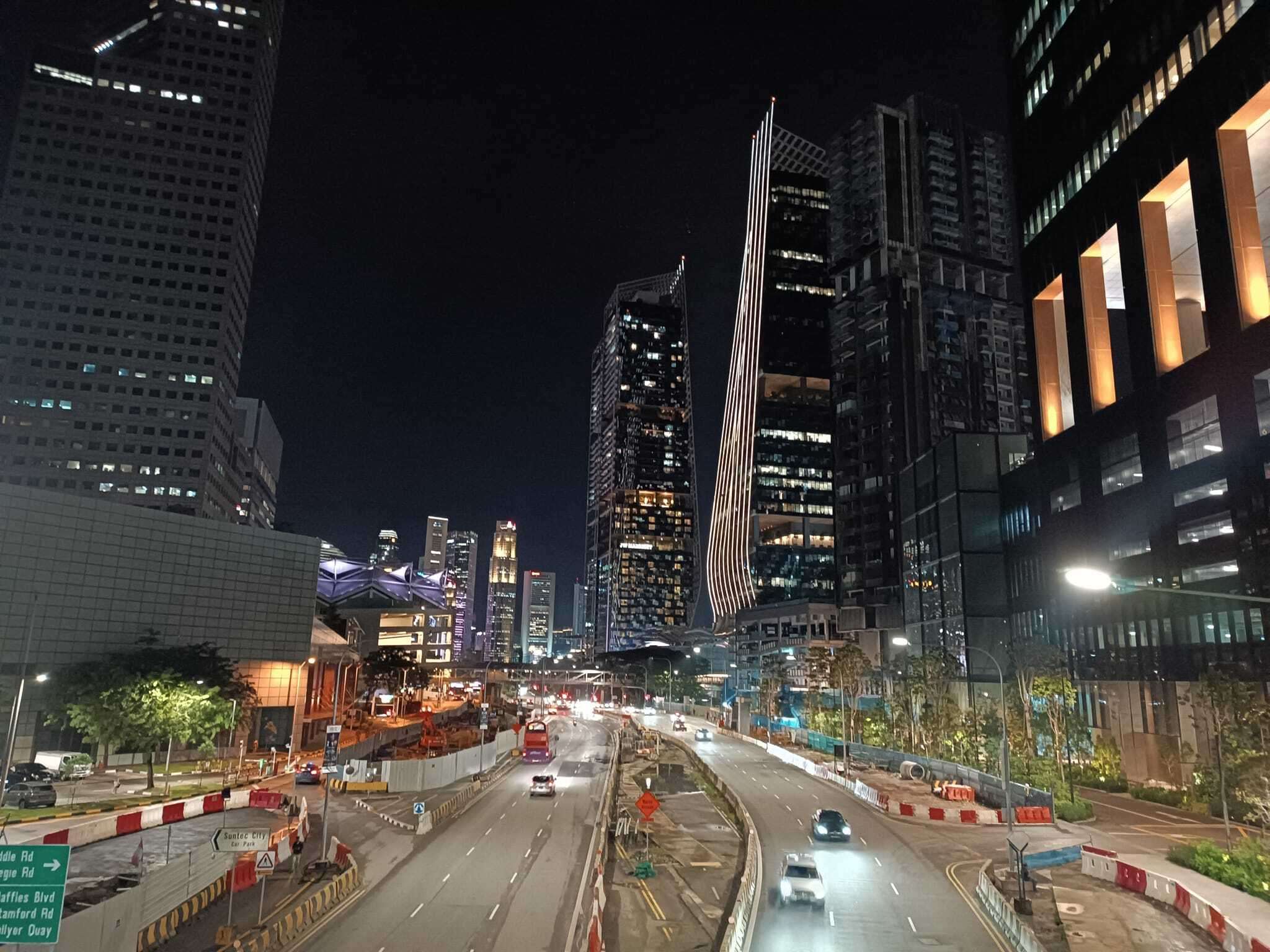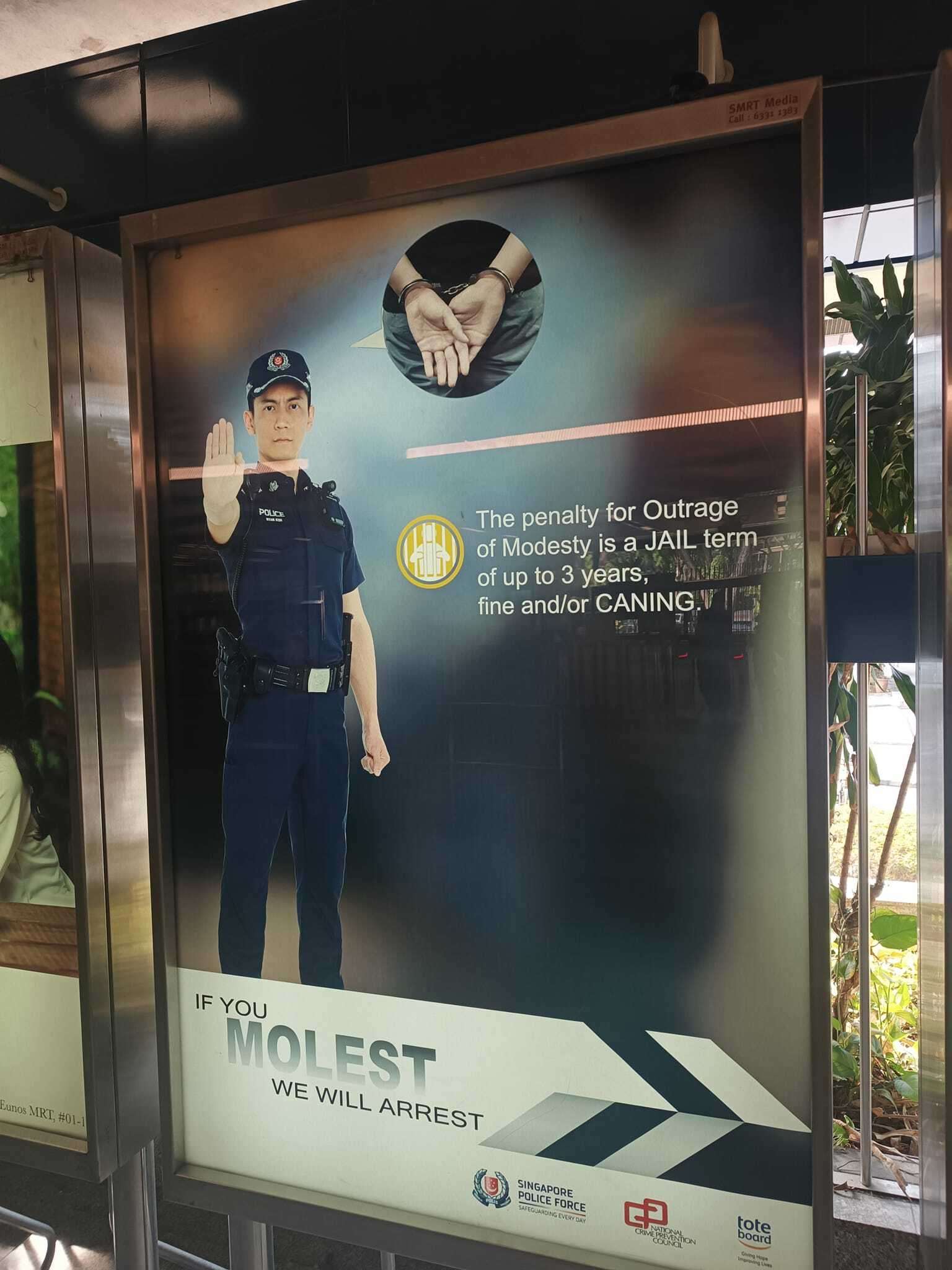Singapore Keeps Hanging Low-Level Drug Couriers, But It Can't Execute Its Way to a Drug-Free Society
The Singaporean government hanged Pannir Selvam this month, the 10th convict to be executed in 2025 for nonviolent narcotics violations.

When I met Angelia Pranthaman and her brother Joshua in Singapore two years ago, they were still cheerful and upbeat. They had a couple of hours to kill before their bus back to Malaysia, a long journey they undertook as often as they could to visit their brother Pannir Selvam.
Growing up in a Christian, Indian-Malaysian family, Pannir's five brothers and sisters remember him as a playful, naughty boy who was always getting into trouble, but also a talented musician who played drums and guitar at their local church.
"He's also a bathroom singer: He always sings when he's in the shower, Malay songs," Angelia reminisced with a smile. "He'd put on his music, and the entire house would go boom-boom-boom!"

Like many Malaysians, Pannir crossed into Singapore for work. He often spent his earnings drinking or gambling, but he always kept in touch with his family. Until one night in 2014, he stopped picking up the phone.
"Pannir doesn't listen to everyone," said Joshua, in his slightly gruff voice. "He chooses people to listen to—one of these people is my sister Sangkari."
"About three or four days, she couldn't reach him. Usually, if he is busy working, maybe at night or the next day, he will call back," added Angelia.
Unable to reach him, they called the house where Pannir was staying. No one there had seen him either. Eventually they reached a friend of their father, a pastor living in Singapore, who told them he'd seen Pannir on TV. He'd been arrested at the Woodlands border checkpoint with bags containing 51 grams of heroin strapped to his groin and hidden under the seat of his motorbike.
In Singapore, anything over 15 grams of heroin triggers an automatic death sentence. For the next 11 years, his family could only see him for an hour at a time through a glass panel.
When we met, Angelia told me her brother was "tired."
"It was almost nine years, and at one point he told my sister that he's OK with everything, you know, he's ready to go," Angelia remembered. "He's tired of being locked down; no communication, no sunlight, no friends, no family, no love….But we believe there is still some energy keeping him alive, keeping him sharp."
Even on death row, Pannir kept himself busy, reading books and composing songs. Upon hearing of my Russian background, Angelia delighted in telling me he'd been reading Dostoevsky.
His final appeal was rejected in September. Just after dawn on October 8, guards led him from his cell in Singapore's Changi Prison to a room where a specially measured noose was fastened around his neck, the knot precisely placed behind his ear to make sure his spine snapped when the trapdoor opened beneath his feet. Gravity did the rest. At 9 a.m., his family arrived to collect his lifeless body. He was 38 years old.
Skyscrapers and high-rises light up the skyline of Singapore, a wealthy city-state off the southeast tip of Malaysia. Crime is rare: only 10 murders last year among 6 million people, roughly the same population as Missouri. There are no shantytowns or homeless encampments. There is no opioid crisis. While their neighbors suffer poverty, strife, and unrest, Singaporeans are well-off and live comfortable lives—the Switzerland of Southeast Asia. It's multiethnic and multicultural, although the Chinese, at three-quarters of the population, are dominant. The city is clean, modern, and cosmopolitan.

So it's jarring to see such medieval punishments. And yet the government argues that it's dealing with drugs so decisively that keeps Singapore so safe. That argument has won sympathy in the White House.
"China, Singapore—actually, there are quite a few, many in Asia, where they have the death penalty," President Donald Trump told a meeting of governors in February. "There's no drug problem whatsoever."
Pannir was the 12th convict to be executed this year—10 of them for nonviolent narcotics violations. The very fact that those couriers keep getting caught suggests there's a consistent demand that's profitable enough for these poor saps to risk their lives.
Singapore is a police state. With its citizenry under near-constant surveillance—more than 110,000 cameras monitor the city—not to mention the threat of having your bare buttocks lashed by a rattan cane as if you were a naughty Victorian schoolboy, it's hard to imagine how a hippie-like subculture could ever develop. And yet the presence of stoner metal bands such as Marijannah (a play on words: marijannah means "come to paradise" in Malay) suggests otherwise.
"I think we're the same as anyplace else, my brother," says M.F., a young man familiar with Singapore's underground drug scene. He asked to be identified by those initials because he has just finished 14 months' confinement and doesn't want to screw up his probation. "It's really just what's more available to whom and what's not, based on who you know and what you can afford to get. For example, cocaine and the much-better-quality weed is available, but it's priced way higher and a little harder to get if you don't have the right contacts."
Party drugs like ecstasy, ketamine, and meth are also not uncommon in the underground gay scene (Singapore outlawed sex between men until late 2022).
"The bulk of the people you'd see in prison are usually in for meth and heroin," M.F. continues. "Weed is common enough here as well, but a lot of people fear smoking weed especially, because the idea is that it stays in your system longer, which proves detrimental if the pigs are ever out to get you."
Much as in Russia, dope is sometimes sold over secret chats in the Telegram app, with the goods delivered to dead drops, perhaps hidden behind a drainage pipe. But there are other ways to score.
"You have your friendly neighborhood plugs—your friend who knows a friend who knows a friend," says M.F. "You could always head down to the red-light district and try your luck, but there you'll have a better chance with Class Cs [the least strict drug category] because the place is swarming with undercover and regular patrol pigs, and nobody wants a drug trafficking charge."
As an occasional toker and psychonaut, M.F. had prior run-ins with the law. After spending some time in the Drug Rehabilitation Centre (DRC)—Singapore's spartan, prison-like mandatory rehab—he stopped smoking for a while. But after a sports injury placed him on medical leave, no longer having to attend court-mandated urine tests, he tossed out the hospital's meds and switched back to blunts.
"Helped with the pain, helped with the depression that came with the whole ordeal, helped with my appetite, helped with a whole lot," he says. "And also, I missed getting stoned and I just wanted to smoke. I would happily get blazed in peace and remained a productive, contributing member of society if the fucking government would stop putting me in their man-made hell for it, claiming it's for the best of me and the country."
After recovering, M.F. started taking urine tests again. They came up clean until one day, his probation officer pulled him aside and demanded a hair sample for analysis. He had no choice: Refusing could land him two years in Changi. (Refusing a urine test can be punished by 10 years.) Three months later, the Central Narcotics Bureau (CNB), Singapore's drug squad, came knocking.
"Fifteen to 20 cops raid my home, put me in cuffs, and bring me back to the station," he recalls. "I'm told that the results are out, and they could see that I used drugs in the period of my medical leave. Mind you, this was half-a-year ago by the time they wanted to charge me for it….It didn't matter to them that I've been clean and reporting weekly for the last couple months."
For all their faults, American cops generally respect Miranda rights. In Singapore, there's no such thing.
"The usual practice in Singapore is that when you are questioned by the police, you don't/can't have a lawyer with you," says the Singaporean journalist and activist Kirsten Han. "This is the same whether you're being interviewed for some innocuous infraction or if you're being questioned for an offense that might turn out to be a capital charge….There's not a lot of transparency into how the Central Narcotics Bureau conducts its investigations, and there's a lack of an independent oversight mechanism that can investigate complaints or check on police behaviour. That said, we sometimes see CNB officers get in trouble, like in 2022 when an officer was convicted of using violence to extort a confession."
There is little freedom of speech in Singapore. Han's coalition—the Transformative Justice Collective, which works to reform the city-state's criminal justice system—is regularly hounded by the authorities.

After pleading guilty and serving 14 months in the DRC, M.F. is now at a halfway house for six months, after which he'll complete the remainder of his three-year sentence under house arrest. Even after that, he'll have to report to the CNB for up to five years. All for getting high.
"All in all, I will be under the watchful eye of the government for the next seven years. That's eight years in total if you include my recent stint in prison…and this is just what's on paper," he grumbled. "Funny thing is that, in the rehab classes I'm made to sit through, they have one lesson where they wish to let you know that slips and relapses are normal in your journey as a drug addict fuck-up, so don't beat yourself up over it happening. I bring my case up with my group counsellor, asking, 'Hey, if this is the case, and this is what the government tells us, then why lock me up and make me do this three-year sentence if I've evidently picked myself up, cleaned up, and have had things going so good for me with [work] and family and all? Now shit is bad again.' My counsellor tells me, 'I don't know, and I completely understand and agree with what you're saying. But all I know is this is the lesson plan I'm told to conduct.'"
The extreme consequences of failing sobriety standards drive drugs deep underground. In 2007, the 19-year-old art student Felicia Teo died after allegedly taking ecstasy with two friends, who burnt and buried her body so as to not be charged themselves. Her family had no idea what happened to her until 13 years later, when a skeleton found on the outskirts of town tested positive for a partial match. As opposition politician Kenneth Jeyaretnam pointed out, none of this might have happened had her friends felt safe calling an ambulance.
It wasn't always this way. When the British established Singapore as a trading outpost in 1819, opium was among the gifts that the city's founder, the colonial officer Stamford Raffles, offered the local Malay sultan. Back then, there was no particular taboo around such psychoactive substances. Raw opium, imported from overseas, was processed into a smokable form known as chandu, which became popular among Chinese laborers. Westernized Chinese reformers pushed for prohibition, but they didn't get very far: The 1907 Opium Committee found the evils of opium to be greatly exaggerated, and the island's newspaper of record, The Straits Times, railed against the hypocrisy of campaigning against opium but not whiskey or beer.
The city's appearance changed dramatically after World War II, its old colonial buildings replaced by skyscrapers and shopping malls. The government's attitude toward narcotics changed dramatically too: In 1951, the Dangerous Drugs Ordinance outlawed cannabis, cocaine, and opiates. Although Singapore inherited capital punishment from British colonial rule, it wasn't yet imposed for breaking psychoactive taboos. Instead, getting caught with a banned substance would earn you a spell in mandatory rehab.
But panic spread in the early '70s, when heroin arrived on the scene. Fearing a junkie infestation and prioritizing social order above all else, the authorities tightened the laws, culminating in the 1973 Misuse of Drugs Act. Drug abuse switched from being seen as a Chinese problem to one of ethnic Malays corrupted by decadent Western culture. Two years later, the law was amended to include capital punishment.
Today, at a time when nearly nine out of 10 Americans want marijuana legalization in some form, Singapore will march you to the gallows for as little as half a kilogram of cannabis.
Drug convicts form just under half of the incarcerated population. While Singapore has stopped releasing statistics on their ethnic or national origin, anecdotal evidence suggests the inmates are disproportionately—if not predominantly—either foreigners or minorities, chiefly Indian or Malay.
"Very roughly, I think about a fifth of the death row population in Singapore are Malaysian nationals, and the rest are Singaporean citizens," says Han. "People on death row tend to come from ethnic minority groups and/or working-class backgrounds—basically people who have been historically excluded, who struggle to make ends meet, who might not have access to opportunities like other people, and are therefore particularly vulnerable to being recruited into the drug trade."
According to Angelia, Pannir was recruited by a man, a fellow Indian, who befriended him at a gambling den and convinced him to carry the drugs. On paper, the law permits commuting death to life imprisonment if a lowly courier co-operates with the investigation. In practice, this was denied to Pannir, even though he'd provided police with intel on his former bosses. It's mainly small-time mules like him who are executed, not the masterminds.
A week later, another smuggler, Hamzah Ibrahim, was hanged, despite likewise co-operating with authorities.
Experts have long questioned the reliability of official data supposedly proving that Singapore is winning the drug war. Studies comparing murder rates between jurisdictions with and without the death penalty fail to find a correlation. Singapore's safety and incredibly low crime rates can also be attributed to other factors—its wealth, for one.
There are no rehabs except the DRC, and no one will publicly admit partaking in drugs: By law, even doctors are obliged to alert the authorities of their drug-addled patients. Thus, Singapore only records "drug abusers" who have come into contact with the system. Arrest figures are small compared to other countries, but that doesn't account for those who haven't been busted. Since Singapore lacks a Skid Row, a lot can happen behind closed doors.
But even the data we do have show the number of detained drug users steadily rising, especially among youth under 20. If demand didn't exist, smugglers wouldn't regularly risk their lives muling their product into the country.
Singaporeans sometimes suggest that drug reformers have a colonial mindset. Drug-fuelled hedonism is (no longer) in their culture, they say, so who are meddling outsiders to tell them what to do?
But on the evening of October 7, Han and hundreds of other supporters held a candlelight vigil for Pannir. Since Hong Lim Park, the only place in the entire city where unsanctioned protest is permitted, was booked out for the week, they had to gather in private or online. They were as Singaporean as founding father Lee Kuan Yew himself, and they wore T-shirts and carried signs reading "NOT IN MY NAME." All pushing back because their government was killing a low-level drug transporter.


Show Comments (51)